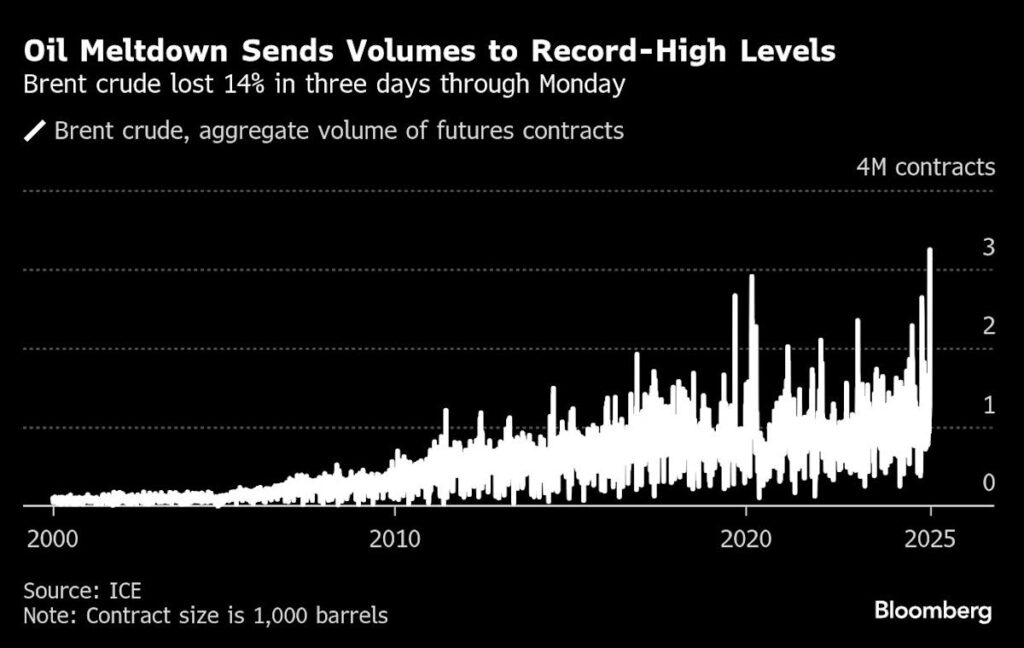(Bloomberg) — Oil fell to close below $60 a barrel for the first time since 2021 after the Trump administration moved to intensify a tit-for-tat trade war with China, inflaming concerns about the trajectory of global demand growth.
Most Read from Bloomberg
West Texas Intermediate futures fell for a fourth straight session to close at $59.58 a barrel before grazing a fresh four-year low after settlement. US President Donald Trump is planning to proceed with implementing tariffs that would amount to 104% on many Chinese goods just after midnight, according to a White House official.
That would mark another significant escalation in the actions against China, a major crude-importing economy. Beijing had responded earlier by saying it’s prepared to “fight to the end” via retaliatory trade measures.
Crude, along with equities, bonds and other commodities, has been roiled this month as the US president presses on with his aggressive trade policy. The ructions have stoked concerns about a global slowdown or recession that would jeopardize energy demand. At the same time, OPEC+ delivered a bigger-than-expected output hike, hurting the outlook for oil market balances.
“We can expect a lot more flip-flopping in the near-term, for better or worse,” said Christina Qi, chief executive officer of Databento, a market data provider. “Unless there’s some kind of clear directional catalyst, like a decision from OPEC or a major central bank, the dynamic is going to stay very push-and-pull.”
Banks have been rushing to cut their forecasts in recent days as a result. Societe Generale SA sees West Texas Intermediate at $57 a barrel by the end of the year, while Goldman Sachs Group Inc. warned of $40 Brent in an extreme case. A top US oil executive is already calling on the Trump administration to explain how a global trade war will help domestic producers.
The turbulence also forced the US Energy Information Administration to delay its monthly report, which had been due Tuesday. The agency said it was re-running its models to account for the most recent market developments.
Chinese crude buyers are likely to halt imports of American oil as the trade war drags on, which will include levies imposed by Beijing on US goods, according to local industry consultant JLC. Companies could instead look to source more cargoes from Russia, the Middle East, West Africa and South America, it said.


